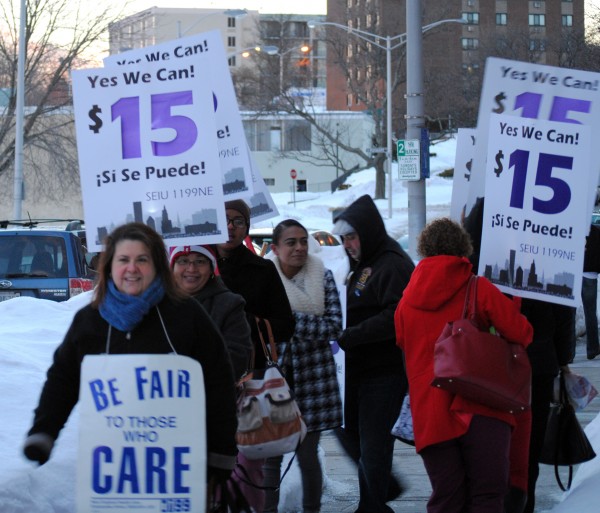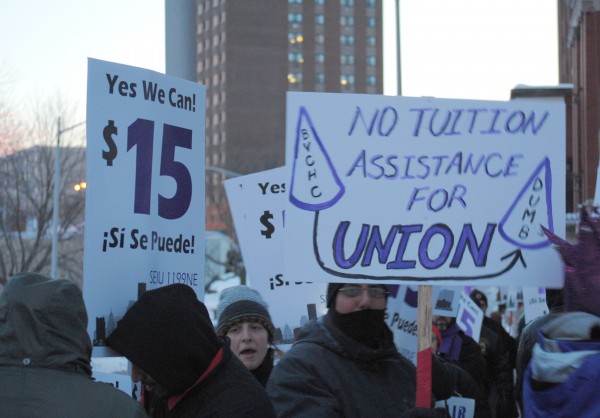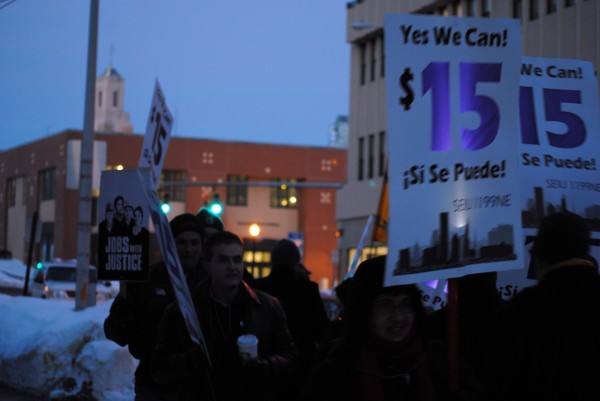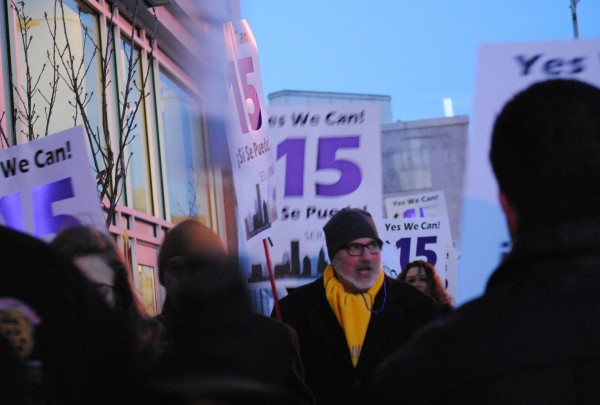 Security camera footage from the Islamic School of Rhode Island taken the night hate-filled anti-Islam graffiti was spray painted on the school shows at least one adult man, said West Warwick Police Major John Mageira.
Security camera footage from the Islamic School of Rhode Island taken the night hate-filled anti-Islam graffiti was spray painted on the school shows at least one adult man, said West Warwick Police Major John Mageira.
“It doesn’t appear to be juveniles,” Mageira said after a press conference at the school on Tuesday.
FBI agent Elizabeth Rosato said her office is “conducting the civil rights investigation right now.” US Attorney Peter Neronha said,”if the conduct is motivated based on ethnicity or race or other protected classes it’s considered to be a hate crime.” To Nerhona’s knowledge, this is the first instance of a hate crime against the Islamic community in Rhode Island.
Law enforcement officers answered questions for the media after a group of religious and other faith leaders gave prepared comments to show solidarity with the Muslim school that was defaced by vandalism after holding a vigil for the three North Carolina Muslims who were killed last week.
“I just want this person to understand how much this hurts,” said Himly Bakri, president of the board of trustees of the Islamic School of Rhode Island, as he was flanked by faith leaders during the press conference.
“To the person who did this, I want to say this to him, or her, we have nothing but prayers for you,” said Mufti Ikram, a Muslim imam, or prayer leader, from Smithfield who works closely with the school. “If you did this to divide us, you failed miserably. If you did this to unite us, you have succeeded.”
They were joined by Rev. Nickolas Knisely, bishop of the Episcopal Church in Rhode Island, Rev. Don Anderson, of the Rhode Island Council of Churches, Steve Ahlquist, president of the Humanists of Rhode Island and Rabbi Sarah Mack, who called the vandalism a “flagrant desecration.”
Outside the school’s gymnasium in West Warwick, there was still spray-painted vandalism on the school that read, “Islam pigs”, “Allah is a pedophile”, “Fuck Muhammad” and “Now this is a hate crime.” One message said “Die pigs” and was written backwards on a window so it could be read from inside the school.” [Pictures below]
“When I was physically here seeing the graffiti on the doors, words can’t describe,” Bakri told me after the press conference. “It had a very personal impact to me. It’s one thing to be distant and seeing something in a picture. It’s another thing to be physically present and seeing the writing of someone who did this. It was just unbelievable.”
There are 160 students at the Islamic School of Rhode Island, which serves students in kindergarten through 8th grade. It’s been in Rhode Island for ten years and became accredited last year. Bakrim said this is the first time the school experienced any such issues.
“It was a complete surprise to everybody,” he said. “For our students I hope they come out of this knowing this is the kind of world that exists today unfortunately, and that they come out wiser and learn how to handle this and hopefully learn from all of us here today … that we should all work together to be on the forefront of stopping this where ever it happens.”
Governor Gina Raimondo said yesterday, “Rhode Island was founded on the tolerance of all beliefs. This hateful act at the Islamic School of Rhode Island has no place in our state. My thoughts and support are with the school and the Muslim community in RI today.”
Senator Jack Reed said, “I strongly condemn the vandalism of the Islamic School of Rhode Island. Our state was founded on religious freedom and we are strengthened by our diversity. There is no justification and no place for this type of intolerance and bigotry in our community. I urge anyone with information about the incident to contact the proper authorities.”
Senator Sheldon Whitehouse said, “This shameful incident is completely at odds with our state’s founding principles, and I hope the perpetrators will soon be brought to justice. To the families and staff who were affected, please know that Rhode Island stands with you and supports you.”

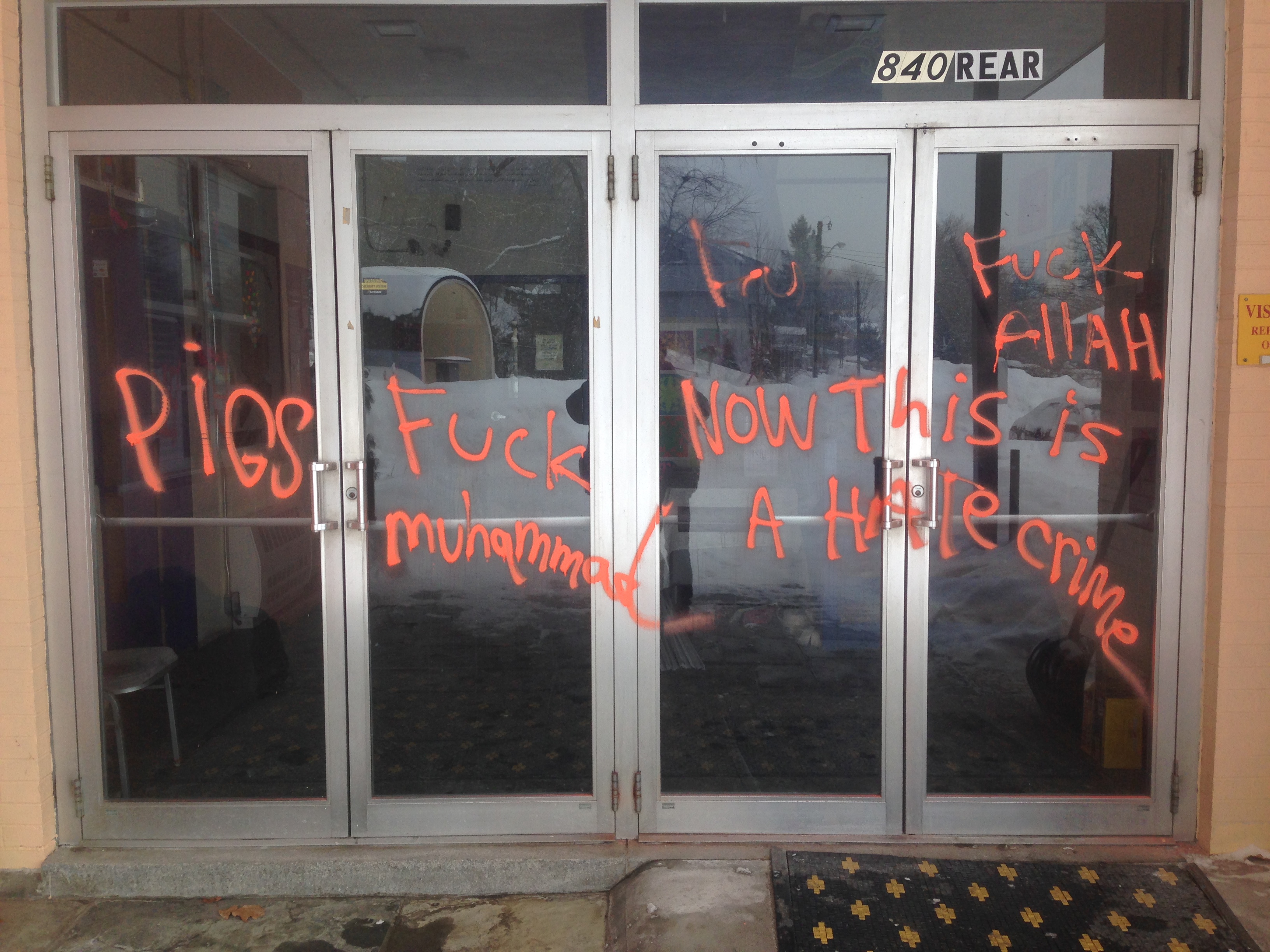
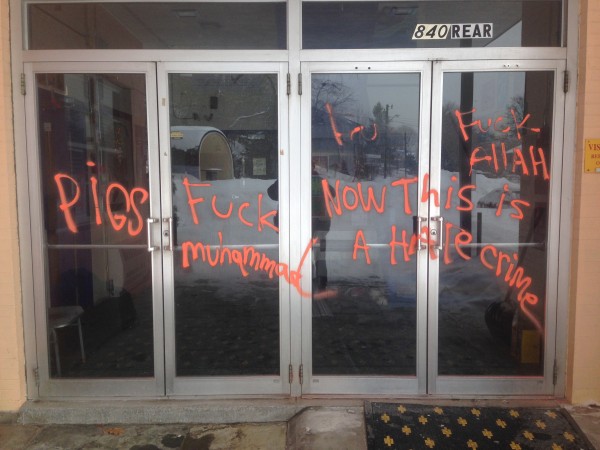
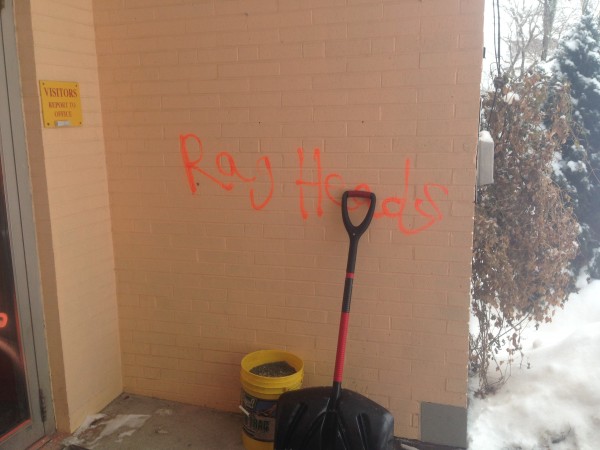










 Polly immediately called Bill’s doctor and arranged a visit over Bill’s protestations. Doctor Rosenberg found that Bill had a previously undiagnosed AFib heart condition that put him at serious risk of a stroke. Had Bill not been admitted to the hospital that morning, he might have died.
Polly immediately called Bill’s doctor and arranged a visit over Bill’s protestations. Doctor Rosenberg found that Bill had a previously undiagnosed AFib heart condition that put him at serious risk of a stroke. Had Bill not been admitted to the hospital that morning, he might have died.
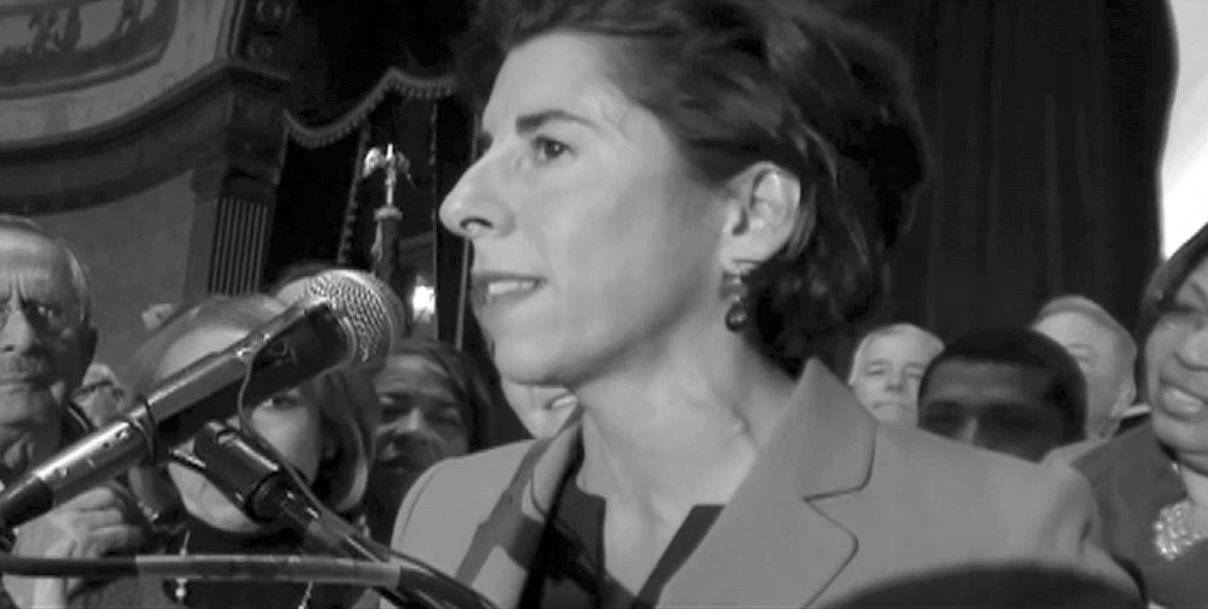
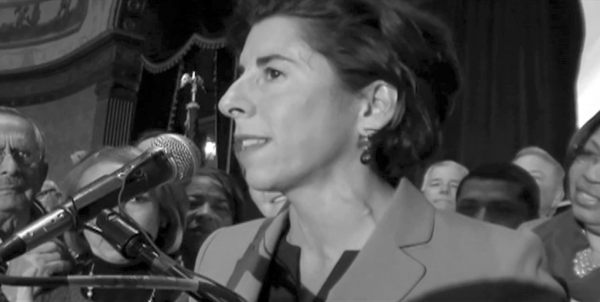










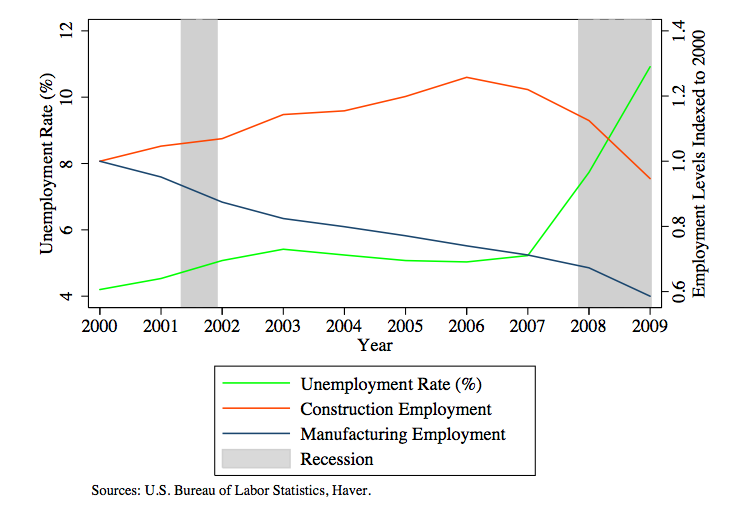
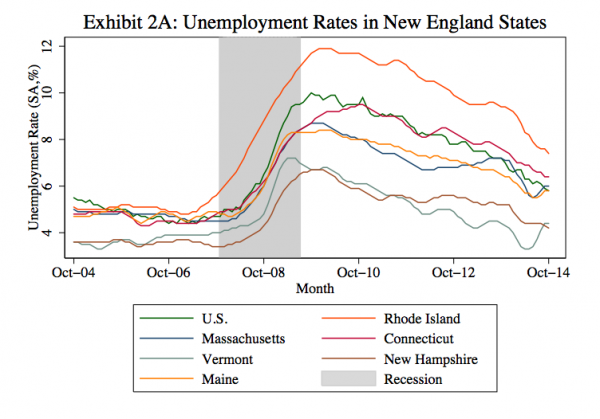
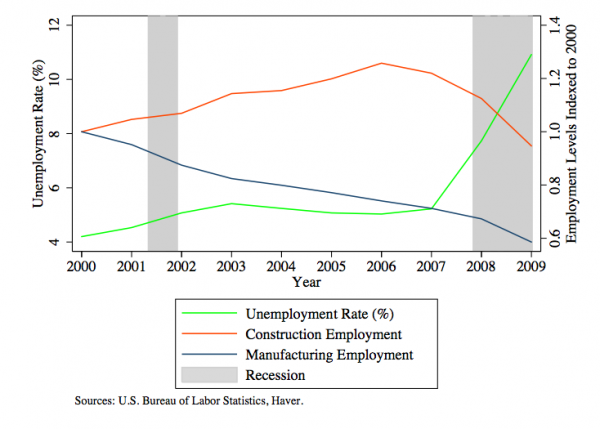
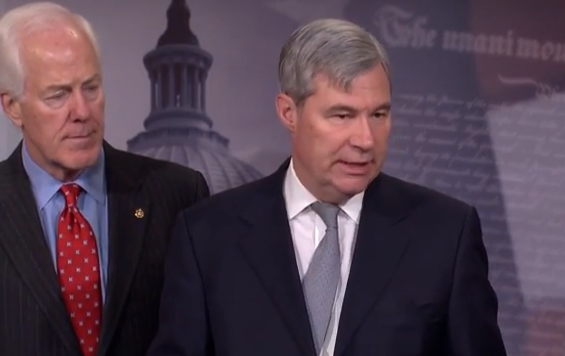
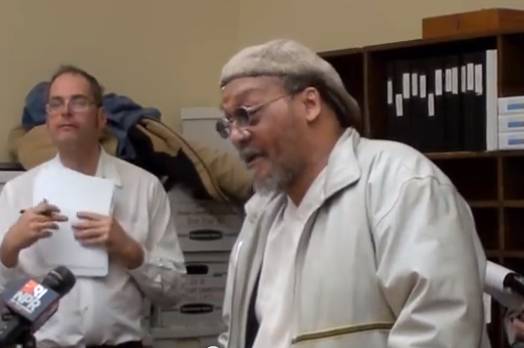

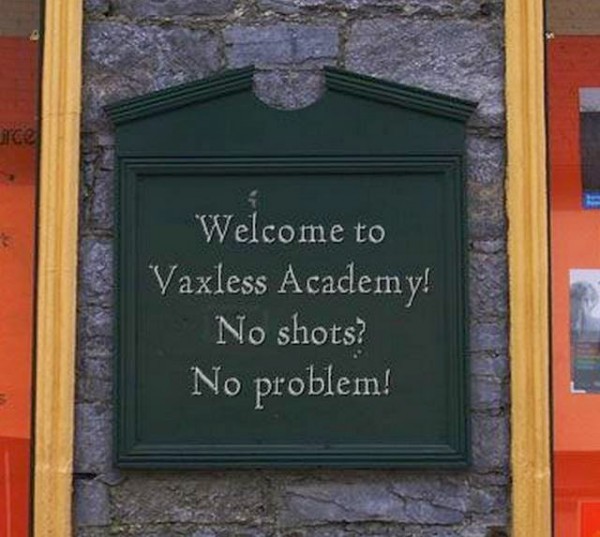
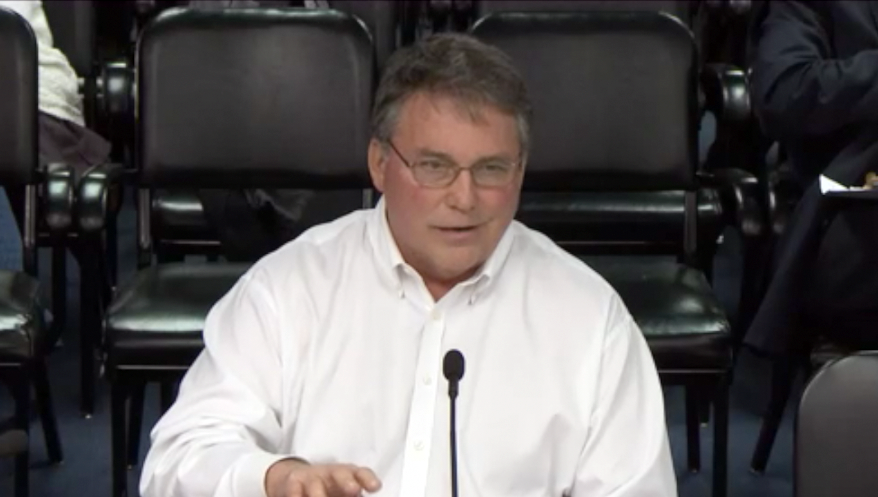
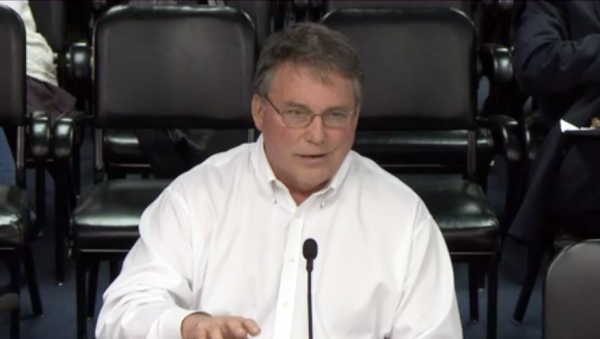
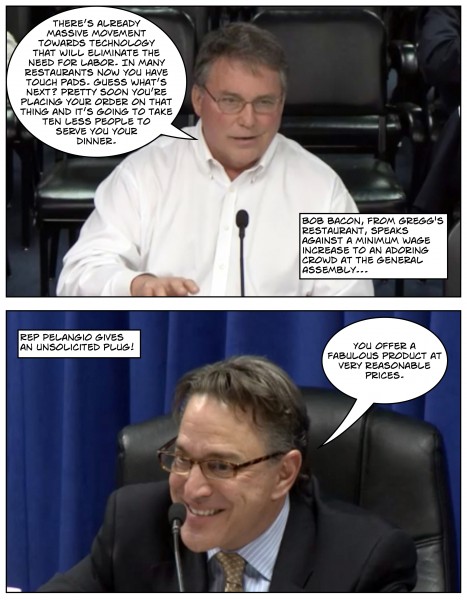
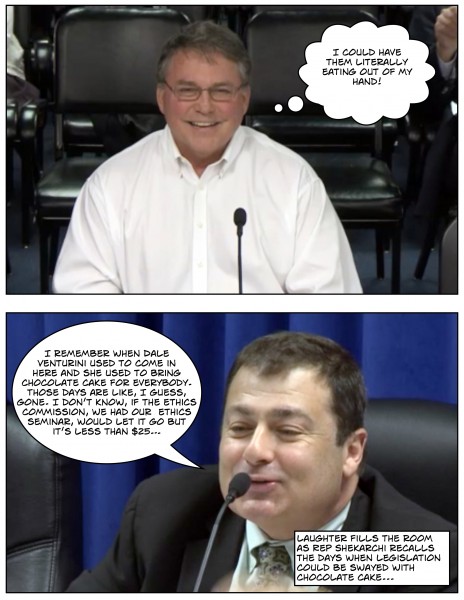



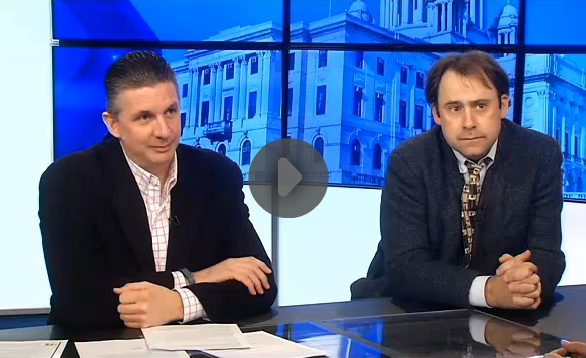





 Tess Brown-Lavoie
Tess Brown-Lavoie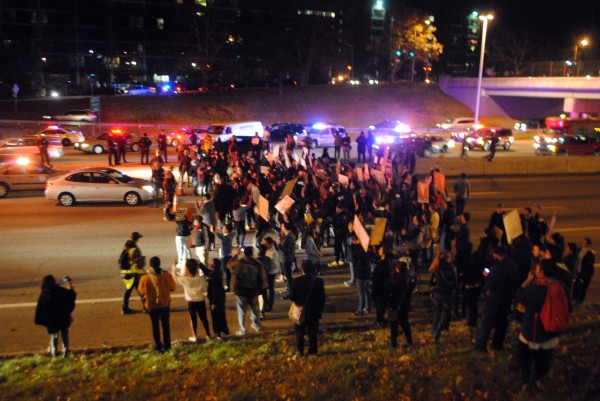 Perhaps the most interesting part of Navarro’s testimony was his description of the events that transpired on the night of the protest. Navarro arrived at the state police barracks on Route 146 in Lincoln just before the call came in about a disturbance on Route 95 near the Washington St. bridge. Four troopers in four cars responded from the barracks, and hit heavy traffic, caused by the protesters blocking the highway, where 146 meets 95.
Perhaps the most interesting part of Navarro’s testimony was his description of the events that transpired on the night of the protest. Navarro arrived at the state police barracks on Route 146 in Lincoln just before the call came in about a disturbance on Route 95 near the Washington St. bridge. Four troopers in four cars responded from the barracks, and hit heavy traffic, caused by the protesters blocking the highway, where 146 meets 95.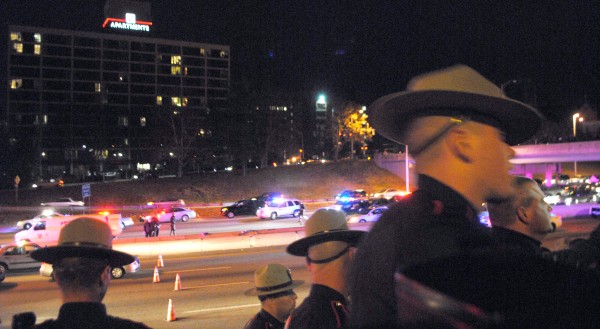 It was while ordering the crowd up the embankment and over the fence back onto the service road that runs parallel to the highway and alongside the Providence Public Safety Complex that Navarro noted an altercation and noted that his fellow officers were in the process of arresting two black men. Navarro focused on his portion of the crowd, commanding the protesters up the embankment and back over the fence.
It was while ordering the crowd up the embankment and over the fence back onto the service road that runs parallel to the highway and alongside the Providence Public Safety Complex that Navarro noted an altercation and noted that his fellow officers were in the process of arresting two black men. Navarro focused on his portion of the crowd, commanding the protesters up the embankment and back over the fence.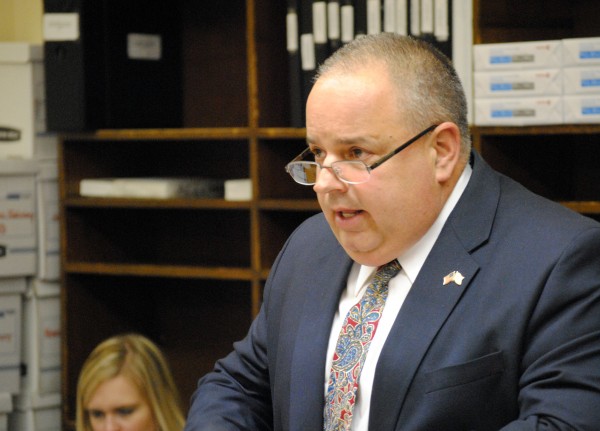

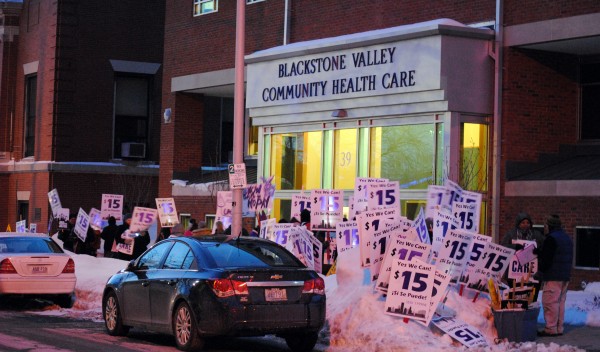 As the sun was setting and temperatures dropped, over seventy workers and supporters took to the sidewalks with illuminated “Yes We Can! $15” signs chanting in both English and Spanish outside
As the sun was setting and temperatures dropped, over seventy workers and supporters took to the sidewalks with illuminated “Yes We Can! $15” signs chanting in both English and Spanish outside  BVCHC has been expanding recently, capitalizing on the increase in business the health care provider has received under Obamacare. The number of patients served by the company has increased to over 15,000.
BVCHC has been expanding recently, capitalizing on the increase in business the health care provider has received under Obamacare. The number of patients served by the company has increased to over 15,000.